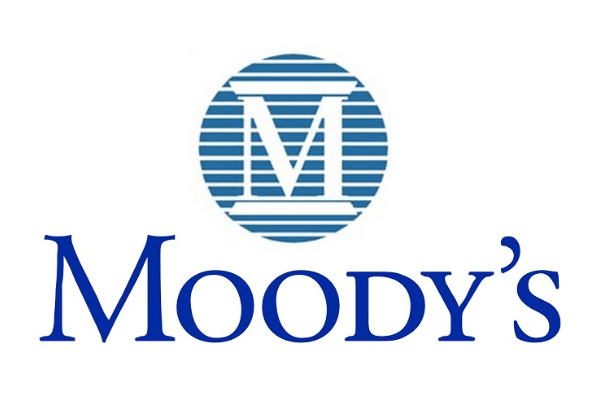NASSAU, BAHAMAS — Moody’s yesterday predicted the country’s debt burden could hit 85 percent of GDP by June 2021 as it lowered the country’s credit rating two notches from Baa3 to Ba2 with a negative outlook.
The credit ratings agency suggested the country could see a 16 to 20 percent contraction in its gross domestic product (GDP) due to a 50 percent loss of its tourism flows.
The agency warned the economic shock from COVID-19 will weigh significantly on the country’s economic and fiscal strength over the medium term.
Moody’s placed the country’s Baa3 rating on review for downgrade in April. At the time, the agency predicted an eight percent contraction in local economic activity due to the virus.
Key drivers behind the rating action were the economic shock caused by the coronavirus crisis; and likely constraints on funding conditions for the government because of larger financing needs.
Moody’s said: “The negative outlook reflects Moody’s expectation that given the severity of the Coronavirus shock, the government’s credit profile will continue to be exposed to downside risks related to the recovery of the tourism sector.
“This could weigh on a consolidation process that Moody’s currently expects will begin in earnest in fiscal 2021/22. Additionally, given its higher borrowing requirements for fiscal 2020/21, the government could face more pronounced liquidity challenges than currently expected.”
Moody’s has also lowered The Bahamas’ long-term foreign-currency bond ceiling to Baa3 from Baa1 and long-term foreign-currency deposit ceiling to Ba3 from Baa3.
“The short-term foreign-currency bond ceiling was lowered to Prime-3 from Prime-2, whereas the short-term foreign-currency deposit ceiling was lowered to Not Prime from Prime-3. The Bahamas’ long-term local currency country risk ceilings were lowered to A3 from A2,” Moody’s said.
“The long-term foreign-currency bond ceilings for Bahamas – Off Shore Banking Center was lowered to A2 from Aa3, while the long-term foreign-currency deposit ceiling remains at A2. The short-term foreign-currency bond and deposit ceilings for the Off Shore Banking Center are unchanged at Prime-1.”
Moody’s said it believes that the recovery of the global tourism sector is exposed to potential changes to consumer behavior following the COVID-19 outbreak.
It furthered performance of the sector also depends on the speed of the recovery of the airline industry and its capacity to service tourist destinations such as The Bahamas.
The agency expects a loss of 50 percent of tourism flows compared to 2019, given that some hotels will not restart their operations until the fourth quarter of this year and the uncertainty surrounding the resumption of the cruise sector.
“A recovery in 2021 to 60 percent to 70 percent of 2019 tourism flows could lead to a GDP expansion of over 10 percent in The Bahamas,” Moody’s continued.
“Notwithstanding this expected increase, The Bahamas’ medium-term economic performance will likely remain subdued because of pre-existing structural constraints — such as weak credit growth, high energy costs and weak ease of doing business — which hinder the sovereign’s economic strength.”
Moody’s added, “The large GDP contraction in 2020 will weigh on the fiscal accounts through the fiscal year that ends in June 2021. In the 2020/21 budget that was presented in May, the government estimated a fiscal deficit that would exceed 11 per cent of GDP — the highest in its history. The large fiscal shortfall reflects a significant loss in revenue, increased capital expenditures to support the economic recovery and reconstruction efforts following the damage caused by Hurricane Dorian in September 2019.”
The ratings agency said that under its baseline scenario, The Bahamas’ debt burden will reach 85 percent of GDP by June 2021, from 60 percent in June 2019.
Additionally, the government’s debt affordability will deteriorate as a consequence of higher interest payments and the loss of revenue, which will push the interest-to-revenue ratio to 22.6 per ent in 2020/21 from 13.5 percent in 2018/19.
However, Moody’s expects the ratio to decline somewhat in subsequent years as government revenue recovers.
Last night, the Ministry of Finance underscored the country is not alone in confronting adverse credit rating assessments stemming from the COVID-19.
The ministry pointed to Italy and India which recently saw their credit ratings downgraded.
“Fair minded Bahamians know that our current state of fiscal affairs is a result of these external shocks and not because of our performance as a Government,” the statement read.
“Indeed, Moody’s has pointed to the Government’s significantly improved fiscal credibility and effectiveness—a direct result of our accountable and responsible fiscal policy framework and consolidation efforts.
“Notwithstanding Moody’s rating rating decision, the Government is confident that its policy measures have appropriately focused on protecting Bahamians, stabilizing our economy, and transforming the current crisis into an opportunity for our future prosperity,” the statement read.
“We are assured that our fiscal plans for the short to medium term horizon will provide the basis for achievement of a sustainable fiscal outcome and strengthened macroeconomic growth.”


